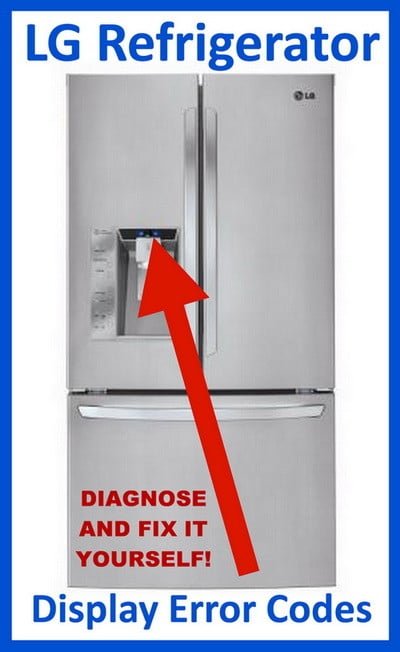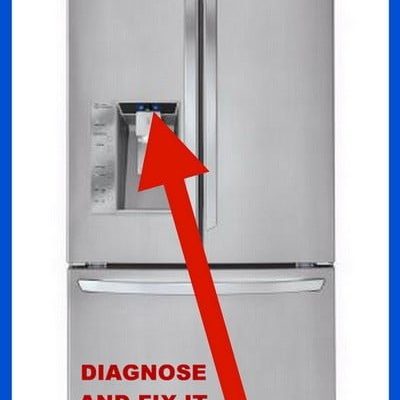
Here’s the deal: the F2 error code on an LG refrigerator usually points to a problem with the evaporator fan motor. This fan is like the unsung hero behind the scenes, working hard to circulate cold air throughout the fridge. Just like a broken fan in a computer can lead to overheating, a faulty evaporator fan can cause temperature issues in your fridge. If left unchecked, this can lead to a host of other problems that might disrupt your daily routine and even spoil your food.
Understanding the Implications of Ignoring the F2 Error
You might be wondering, “What happens if I just ignore that pesky F2 error code?” Well, let’s break it down. In the short term, you might notice that your fridge isn’t as cold as it used to be. This is because the cold air isn’t being circulated properly. Think of it like trying to cool down a room with a broken fan—only one spot is getting any relief, while the rest of the room stays warm. In your fridge, this means uneven cooling, potentially leading to spoiled food that isn’t kept at the right temperature.
In the long run, consistently ignoring the F2 error can lead to more severe issues. The evaporator fan motor is like the heart of the temperature regulation system in your fridge. If it fails completely, your fridge might not be able to maintain the necessary cold temperatures at all. This could mean the difference between a cool fridge and one that’s more like a warm cupboard, which is less than ideal for storing perishables.
Moreover, failing to address this issue could cause other components of your refrigerator to work harder, leading to a ripple effect of failures down the line. For example, the compressor might strain to compensate, potentially reducing its lifespan. You wouldn’t want a simple fan issue to escalate into a major repair job, right?
Consequences You Might Face
So, what are some concrete consequences you might face if you don’t fix the F2 error? First, there’s the obvious risk of food spoilage. It’s not just an inconvenience; it can also become quite costly. Imagine having to throw away your entire fridge’s contents because they weren’t kept cold enough—yikes! Plus, there’s the risk of foodborne illnesses if improperly stored food is consumed.
Another consequence is the financial aspect. While you might think you’re saving money by avoiding a repair, the opposite might be true in the long run. A small repair bill now could prevent a more substantial one in the future if multiple components need replacing due to neglect. Let’s face it, dealing with multiple appliance issues is never fun for your wallet.
Lastly, not addressing the F2 error can reduce your fridge’s overall efficiency. It might start consuming more electricity as it struggles to maintain the right temperature, leading to higher energy bills. It’s like driving a car with a flat tire—you’re using more gas and causing more wear and tear on the vehicle.
Steps to Address and Prevent the F2 Error
Now that you know the potential consequences, let’s talk about what you can do about it. If you see the F2 error, the first step is not to panic. Check the basics: make sure nothing is blocking the fan blades, like ice buildup or a misplaced item. If it’s clear, you might need to consult your refrigerator’s manual for specific troubleshooting steps or even reach out to a professional technician.
If you’re a bit handy, you could try replacing the evaporator fan motor yourself. It’s somewhat like changing a light bulb if you’re familiar with appliance mechanics—it takes some tools and a bit of patience, but it could save you a service call fee. However, if you’re not comfortable tackling this on your own, calling in the pros is a smart move. They’ll ensure the job is done right and can check for any other underlying issues.
Prevention is key to avoiding future headaches. Regularly defrosting your fridge if ice buildup is an issue, keeping the freezer vents clear, and ensuring that your fridge is not overstuffed can help maintain proper air circulation. Think of it as giving your fridge a little TLC to keep it running smoothly.
Remember, an ounce of prevention is worth a pound of cure. By taking care of the F2 error promptly and maintaining your refrigerator, you can avoid the hassle and expense of more significant problems down the road. Your fridge—and your food—will thank you!
